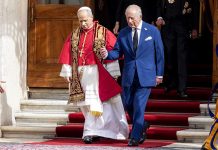Preparations towards general elections are characterized by a wide range of issues. One thing that stands out as a major characteristic of general elections is the making of political promises. Promises are made by politicians to signal to the electorate their intentions for seeking power for the voters to evaluate them based on these promises.
Democratic values are indeed entrenched in accountability. Making political promises can be useful and serves as an important benchmark for measuring performance of a Government.
Manifestos have long been important primary documents of political parties in established democracies all over the world. Campaign promises may change from election to election but they are almost related to changing current issues that are on the minds of voters. Just like any promise, political promises can bring so much excitement such that when they are later found to be empty can have serious consequences.
It is interesting to note that when political promises are made out of the blue on top of the head of a politician it is often difficult to hold politicians accountable especially when the promise may not be a party’s position spelt out clearly in a manifesto.
One thing that is also worthy to note is that some political promises are given in a sketchy manner such that when there is further probing into the mode of implementation of such a vision it becomes a daunting task for party communicators.
Preparation towards this year’s general election is not any different since already the flood gates of promises appear to be widely opened and the electorate is inundated with these promises already.
Quite recently the New Patriotic Party (NPP) launched its Manifesto in Takoradi in the Western Region. This was preceded by the launch of the youth Manifesto of National Democratic Congress (NDC) and the subsequent launch of the party’s main manifesto. The Movement for Change also has also come up with what it calls the Great Transformation Plan in which the vision of the Party has been spelt out.
It may be appropriate to look at some of the commonalities and differences of the two main political parties, that is, the New Patriotic Party and the National Democratic Congress (NDC) for sustainable nation building and their likely impact since that is what is readily available for public consumption.
The manifestos of the New Patriotic Party and the National Democratic Congress emphasize job creation with NPP targeting one million jobs through digitalization construction and Agribusiness while NDC focuses on industrialization and Agriculture
In the area of education, the NDC and NPP have an agenda tailored at enhancing and expanding the Free SHS programme though the NDC proposes a review to address shortcomings in the entire programme.
In the area of health, the NPP is set on completing the Agenda 111 hospitals and expanding the National Health Insurance Scheme while the NDC is considering universal healthcare with an improved National Health Insurance. In respect to the economy, the strategy of the NPP is to build a world class digital economy while the NDC emphasizes a 24-hour economy driven by manufacturing and Agriculture.
On taxation whereas the NPP is for a flat Tax System, the NDC is for a progressive tax System among others. It is in the light of these myriad of promises inherent in Political party Manifesto that people have described the period as a manifesto season.
It is prudent to indicate that it is not every electorate who has the luxury of time or can even assess and critically peruse manifestos of political parties. Knowledge of the contents of party manifestos are very often made available to the general public through media discussions. Good party communicators, therefore, have a role to play as to how well the electorate would understand the contents of a manifesto.
The era of social media where very often promises made on party campaign platforms are captured on tape should be a reference point for politicians to weigh their words before releasing them as promises. For if it becomes immeasurably humiliating when politicians fall flat against their promise when there is a playback on what they promised to do and what they actually succeeded in accomplishing.
Politicians seeking elections will do the electorate a great service by being guided by the S.M.A.R.T. acronym in Management by ensuring that their promises are Specific, Measurable, Achievable, Realistic and bound by Time, since this a sure way by which the electorate will weigh them on the scale during the next election.
One of the challenges that however confront multiparty democracy is the contention between political party ideologies embedded in manifestos and national aspirations for sustainable national development. It is worthwhile to indicate that when development of a nation is steered strictly by a party manifesto and not a national development plan, it makes it difficult for other governments to use them.
Invariably implementation of some programmesare sometimes truncated as a result of change in Government, leading to waste of the country’s scarce resources
As politicians discuss their manifestos in preparation for the Country’s general election it is worthwhile for them to note that multiparty democracy is nothing more than a system of governance, a means to take a nation and its people forward. It is not an end in itself and should not be placed above national interest.
The National Development Planning Commission should be strengthened enough to be able to set the agenda for national development that has the buy-in of all political parties This should serve as a yardstick by which manifestos of political parties will be measured. That way political party manifestos would come closer to all manifestoes and the difference may be in the pace at which one Government wants to develop.
Political parties from generation to generation will do the nation a great service by aligning their manifesto to this national vision that should be spearheaded by the National Development Planning Commission. This would ensure the needed synergy in development planning that would ensure policy stability and harmony in nation building. This will be the sure way for sustainable national development.
By D. D. Owusu-Amoah, Technical Director, Ministry of Information
The views expressed in this article are the author’s own and do not necessarily reflect The Chronicle’s stance.









